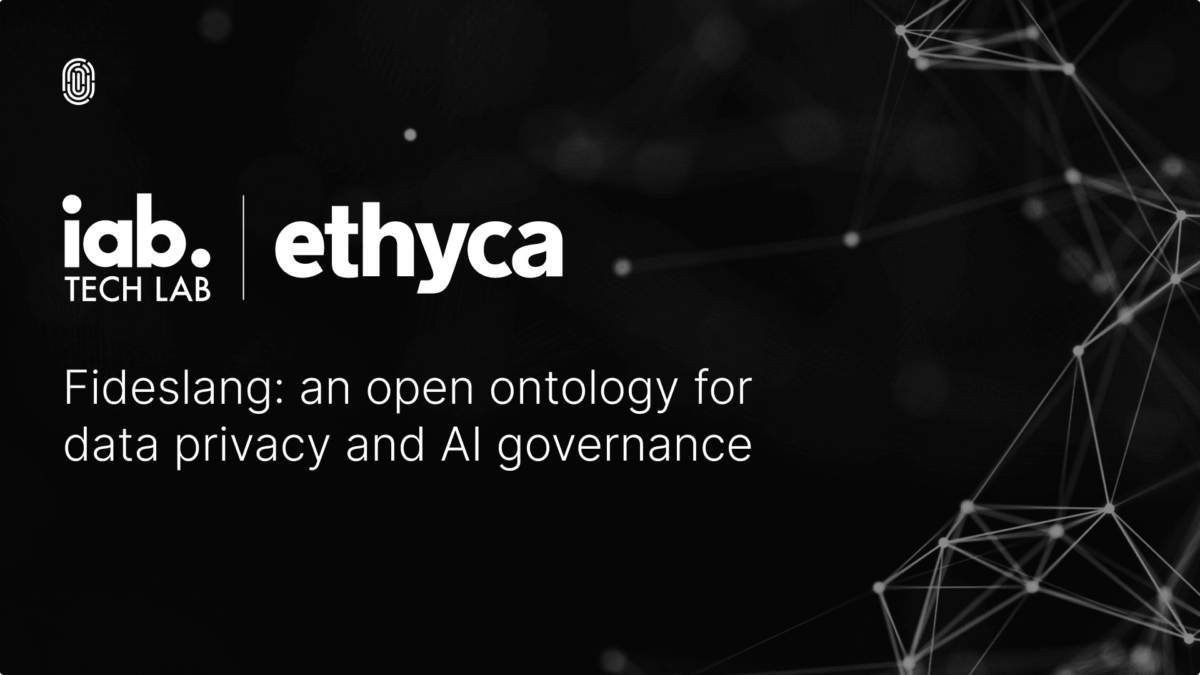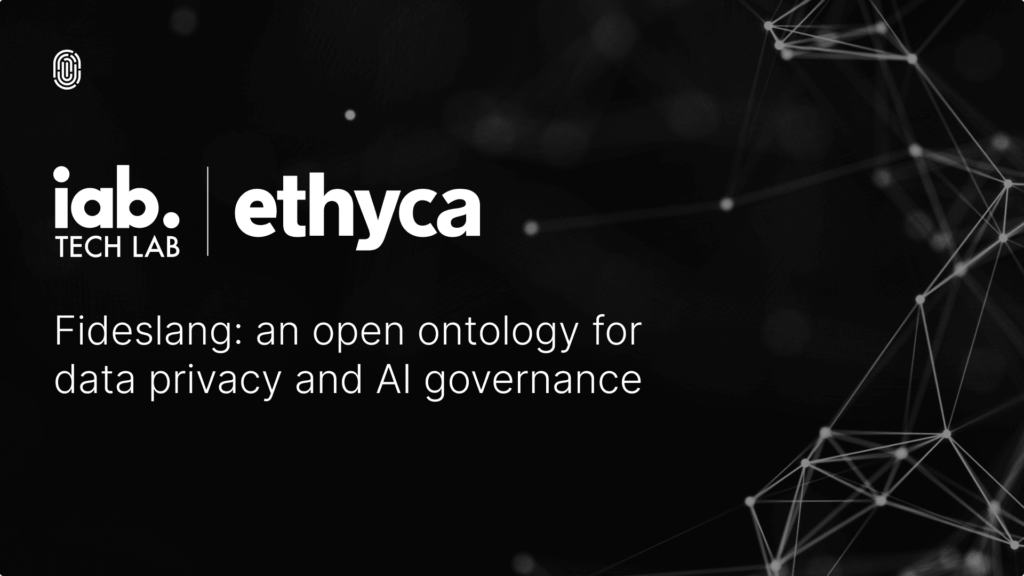Fideslang: an open ontology for data privacy and AI governance


I couldn’t be more excited about today’s announcement that the IAB Tech Lab will become the maintainer of the Fideslang open-source standard for data governance.
This wide adoption of the Fides Taxonomy and Ontology is a step toward simplifying data governance for advertising, software, data, and AI enterprises, and, most importantly, greater safety for every human that interacts with technology.
Let’s explore some of the benefits of an open data governance ontology.
1. Understand data and data processing risks
An easy-to-understand ontology provides a way for different teams, companies, and vendors to consistently describe the data they are processing and the purpose for which it is processed.
This enables legal, compliance, security, and engineering teams to have the same understanding of the types of data being processed, the possible risks associated with those activities, and how best to mitigate those risks.
A consistent understanding of the types of data and risks associated with processing applies equally between internal teams and external vendors, meaning your organization can easily understand the risks of how data is processed by your vendors and partners.
2. Simplify governance across regulations and geographies
There are endless regulations, frameworks, and geographic specificities which causes complexity for any enterprise team trying to comply globally.
The Fideslang Ontology is a pre-built translation layer for data processing activities, data categories, data subjects, and risks that have been created through research on major regulations and frameworks.
By using the free Fideslang Ontology and labeling conventions, you’ll have an actionable layer of metadata that allows you to govern with the confidence that you can interpret and enforce all major regulations.
3. Easily process DSRs and privacy requests across systems
Fideslang allows you to label personal data across databases, warehouses, and third-party vendors in both structured and unstructured formats so that processing a DSR becomes reliable, repeatable, and automated.
Fideslang makes it easy to ensure that you can honor requirements, such as “deleting all demographic and contact data” in response to a DSR, and that the data is identified and deleted across all relevant systems and vendors.
4. Enforce consent across regulations, geographies, and systems
Fideslang has already been updated with data uses that map to all of the IAB TCF v2.2 purposes, as well as to the GPP purposes, meaning that when you label with Fideslang you get a direct translation to GPP for the U.S. and TCF for Europe and Canada.
A single labeling standard that automatically maps to the appropriate regulations and geographies will simplify and unify common consent frameworks.
Conclusion
The Fideslang donation is a major milestone towards interoperability in data privacy and AI governance. This single standard language for trust reliably models major regulations and meets the needs of engineering teams working in the advertising, software, data, or AI industry.
Using Fideslang will reduce data governance complexity, increase interoperability and transparency, and allow enterprises to continue scaling data processing activities with trust and safety at the core.